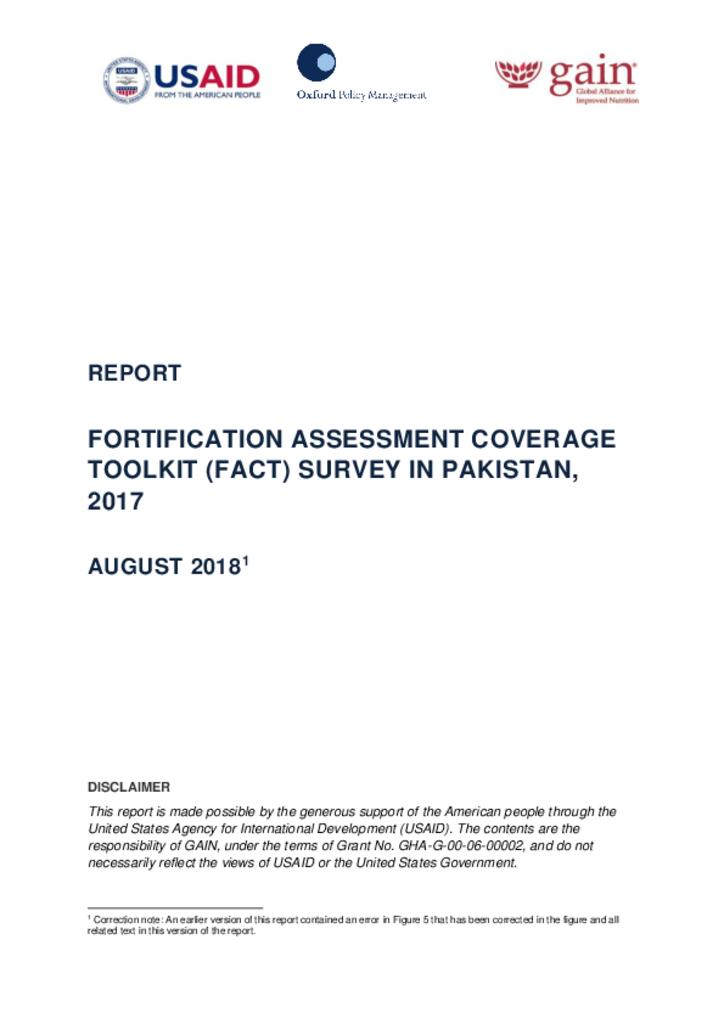High levels of micronutrient deficiencies exist among young children and women of reproductive age in Pakistan, which may have long-term negative impact on individual health and well-being. There is currently limited data on the coverage, and consumption of fortifiable and fortified foods, as well as the quality of fortified foods in the country.
In 2017, a cross-sectional survey, comprised of a household assessment in three provinces (Balochistan, Punjab, and Sindh) and a market assessment in four provinces (Balochistan, Punjab, Sindh, and Khyber Pakhtunkhwa), was implemented using the Fortification Assessment Coverage Toolkit (FACT). The aim of the survey was to provide data on household coverage and consumption of fortifiable and fortified foods among children and women of reproductive age, and availability and quality of fortified foods from markets.
This survey provided evidence that fortification of salt and oil/ghee could have a large impact on the intakes of iodine and vitamin A among young children and women of reproductive age in Balochistan, Punjab, and Sindh. However, for this to occur all products would need to be fortified in compliance with the fortification standard. For wheat flour, the potential for impact from large-scale fortification is more limited considering its much lower coverage in a fortifiable form, a factor that is further compounded by the fact that a large proportion is produced by small-scale chakki mills. Additional analysis into the feasibility of the wheat flour fortification programme is needed.
